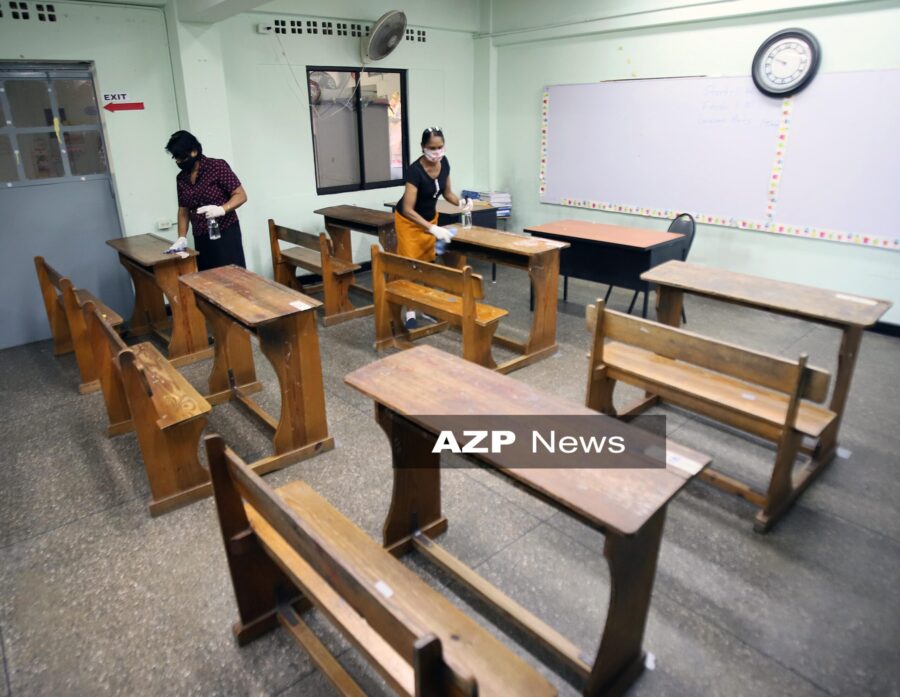By Sue-Ann Wayow
THE Caribbean Examinations Council (CXC) has released the detailed report provided by the Independent Review Team that was formed to review the results of this year’s examinations.
The report listed 23 recommendations for the immediate, medium and long term some of which have already gone into effect, CXC had stated during a press conference on Sunday. Many of the recommendations involved the increase use of technology especially CXC’s website.

The formation of the team came after there was regional confusion over the grades received particularly for the Caribbean Education Secondary Certificate (CSEC) and the Caribbean Advanced Proficiency Examination (CAPE).
The recommendations section of the report stated, “The impact of the Covid-19 pandemic necessitated adjustments to the administration and grading process of the 2020 CSEC and CAPE examinations. In contrast to examining boards in several regions that cancelled or modified examinations, CXC, in consultation with regional stakeholders, adopted a modified, rigorous approach to conducting exams in 2020.”
“Consistent with the realised aims of the 1972 agreement of participating English-speaking Caribbean governments to regulate the conduct of examinations, CXC should consider the following immediate-term and mid-to-long-term recommendations to ensure the continued promotion of consistency, accuracy, fairness and application of standards at all stages of the process across years, subjects, and examination sessions.”
The list of immediate recommendations include:
- Reasonably extend deadline beyond Friday, October 23, 2020, for submission of Requests for Reviews (RFR) consistent with the regional impact of conducting modified exams during Covid-19. This has been extended till November 6, 2020 CXC stated
- Reduce cost for Requests for Reviews (RFR) for this recent 2020 sitting of exams. CXC stated that the cost would be reduced from US$30 to US$15 and those who already paid the full fee would be refunded.
- Revert to the pre-January 2018 position and practice where a Review included a remark. CXC also said this recommendation will be acted upon.
- Expedite RFR, particularly for scripts that are borderline single grade changes. The team made recommendations that for a predetermined period immediately after the publication of grades, beginning this year and continuing that , a RFR portal should be created and be visibly accessible on CXC’s webpage – similarly prominent as the invitation to take a survey when CXC website is initially accessed. This portal should be for a set time immediately following the publication of grades. It is also recommended that there be a creation and formalisation Emergency Request for Review (ERFR) Portal to address RFR from students with expectations for scholarships pending the status of their assessments and award of grade. This should be prominently displayed and easily accessible consistent. And there should be an implementation of an expedited process for payments for ERFR and RFR to be made to CXC not excluding any medium.
- Abandon the CXC policy and practice of grade diminution in CXC’s declaration “that a review of your script may result in your overall Grade either increasing, decreasing or remaining the same”. CXC should be estopped or prevented from arriving at a lower grade than what CXC itself previously determined and on which students relied.
- Facilitate easier access and speedier response for Query Requests (QR), distinct from RFR, not excluding a LiveChat and/or similarly more responsive medium to make queries and receive timely responses. The QR portal should be distinct from RFR portal and available year-round. It should also have a bank of suggested concerns and potential responses from which to choose, based on frequently asked questions and responses.
- Execute a reflection workshop focused on improved communication with local registrars about the grading exercise and function of profiles in grading.
- Execute a damage control campaign across traditional, new and emerging media to inform a positive public relations perception, leveraging reports and other initiatives relied on to ensure the continued promotion of consistency, accuracy, fairness and application of standards at all stages of the process across years, subjects, and examination sessions.
The list of Mid-to-Long Term Recommendations:
- Formalise the provision and release of strategic training workshops for teachers to arrest the difference between teacher-awarded scores and CXC-moderated scores. These should be done through Reflection Workshops and Choice Workshops. Reflection workshops would better assist teachers to interpret feedback on student performance to inform ongoing and future preparation of students.
Choice workshops would be teacher-driven workshops where teachers would access a reservoir of professional development videos, interactive training modules, and other forms of training on requirements, content, format, structure and moderation of School Based Assessments SBAs – readily available on CXC website and accessible anytime by teachers with the least, reasonable restrictions.
- Institute initiatives and programmes to ensure a more rigorous and much sharper focus of teachers in preparing students for (SBAs) and provide requisite training on all aspects.
- Formalise administrative training for teachers on preparing and uploading SBAs.
- Engage in a series of education campaigns for students to help them anticipate, respond to and avoid consistent impediments faced in completing SBAs. This should exclude no medium and be engaging and age appropriate.
- As technological innovation for handling voluminous files is updated and refined, information should be shared with stakeholders including local registrars and teachers and requisite training conducted.
- Conduct an audit of the standardisation process for moderation of exams within and across countries.
- Formalise the provision of a series of workshops for examiners in each subject area on the grading approach and marking activities.
- Replenish and expand the exam item bank on a scheduled, regular basis for all subjects in which Paper I is a component of the examination to avoid overuse and mitigate security breach. This should take place as a matter of urgency. Introduce stricter measures to ensure the management of question security of the item bank and take immediate action on formal or informal notification of security breaches of the item bank.
- Engage in a strategic network campaign to strengthen and deepen the relationship between CXC and teachers within and across territories.
- Develop a system in which, at a minimum, regular sampling is conducted at all testing centres within and across territories.
- Conduct an efficiency audit of the role of local registrars to strengthen communication, problem solving and training workshops.
- Create individual portals on CXC webpage dedicated to significant class of stakeholders including students, teachers, registrars, testing centres and parents.
- Establish a research and development unit to undertake empirical research and rigorously mine the volume of data already being collected, to inform and strengthen CXC in evidenced based and data-driven policy making.
- Undertake contingency planning as part of CXC’s strategic planning process.
- Strengthen biennial stakeholder satisfaction surveys to assess CXC’s compliance with its mandate.
CXC’s chairman Sir Hilary Beckles on Sunday, stated that the recommendations would only serve to improve and strengthen CXC’s service to the Caribbean as the main examining body.
![]()











